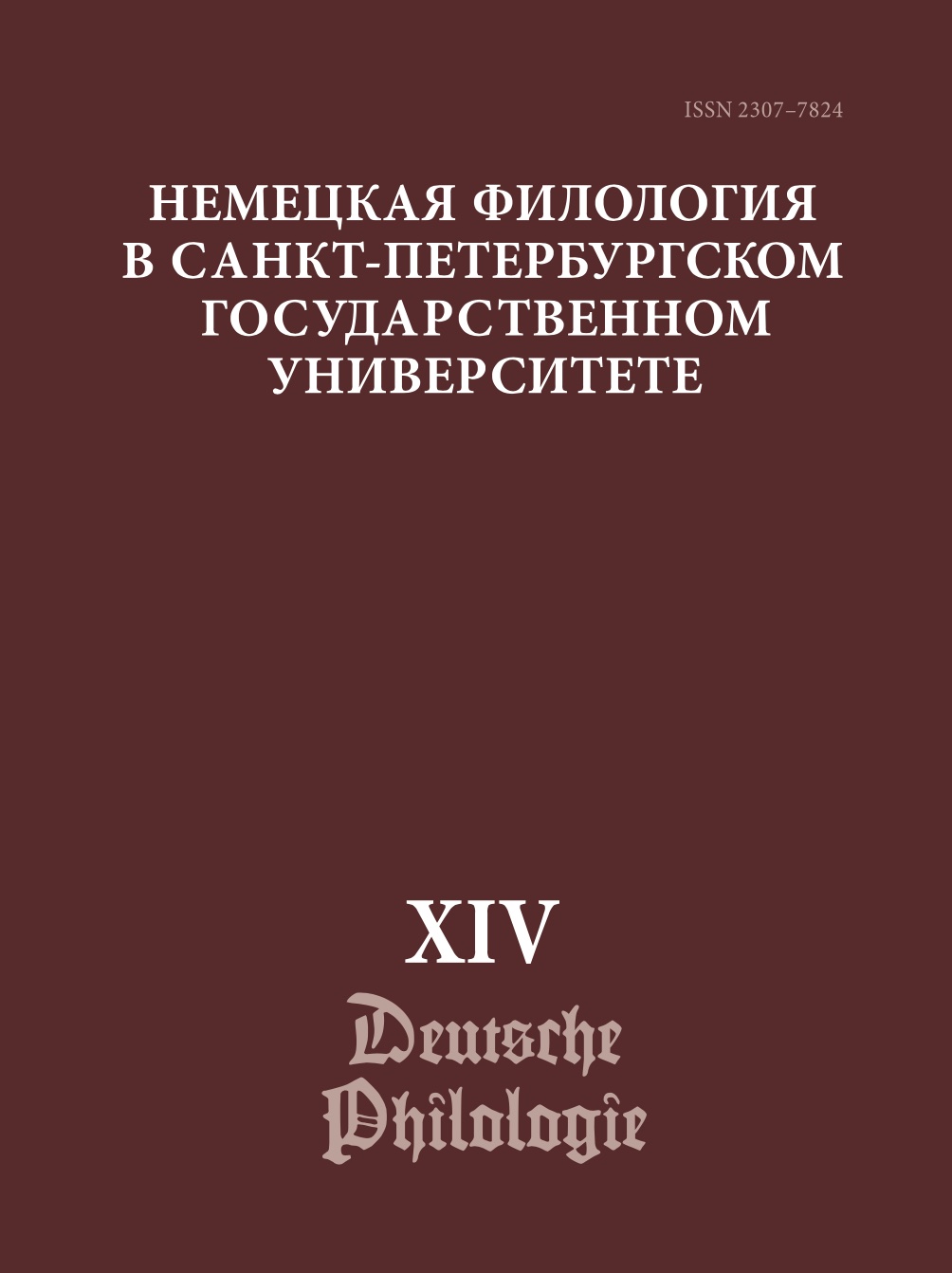PROBLEMGERECHTE KLIMA-SPRACHE AS AN INSTRUMENT OF GERMANY’S LANGUAGE POLICY AT THE PRESENT STAGE
DOI:
https://doi.org/10.21638/spbu33.2024.114Abstract
This paper deals with the econeologisms in the German language that arise as a result of environmental and climate problems of our time, as well as under the influence of the new energy policy of Germany. The objectives of the study include describing environmental neologisms in several aspects: in the light of the extralinguistic conditionality of the vocabulary, in the context of environmental ideology, the German state language policy and the current language situation, from the point of view of intralinguistic factors and vectors of development of the vocabulary in the modern German. The research carried out in the article shows that the relevance of environmental protection and climate protection for German society has given rise to a whole series of neologisms that form a language appropriate with the problems of climate change — problemgerechte Klima-Sprache / klimagerechte Sprache. Metaphors play a significant role in replenishing the climate lexicon, that radicalize the language description of climate change, which is characteristic, in particular, of the German journalistic discourse on environmental topics. The escalation of the environmental and climate situation observed in the media can be considered as a part of the language policy of the German state, which is not always approved by its citizens. The use of methods of semantic, structural, contextual, comparative analysis allows the author to identify some trends and features of neologization of the German in general and in the field of the “green agenda” in particular and to present the problems of translating environmental neologisms into Russian.
Keywords:
Klimagerechte Sprache, state language policy, environmental policy, environmental neologisms
Downloads
References
Литература
References
Downloads
Published
How to Cite
Issue
Section
License
Условия передачи авторских прав на статьи и рецензии, опубликованные в ежегодном периодическом издании «Немецкая филология» регулируются условиями Лицензионного Договора автора с Санкт-Петербургским государственным университетом. В соответствии с Лицензионным Договором опубликованные материалы находятся в открытом доступе, а авторам бесплатно предоставляется неограниченные возможности их распространения и самостоятельного архивирования.




